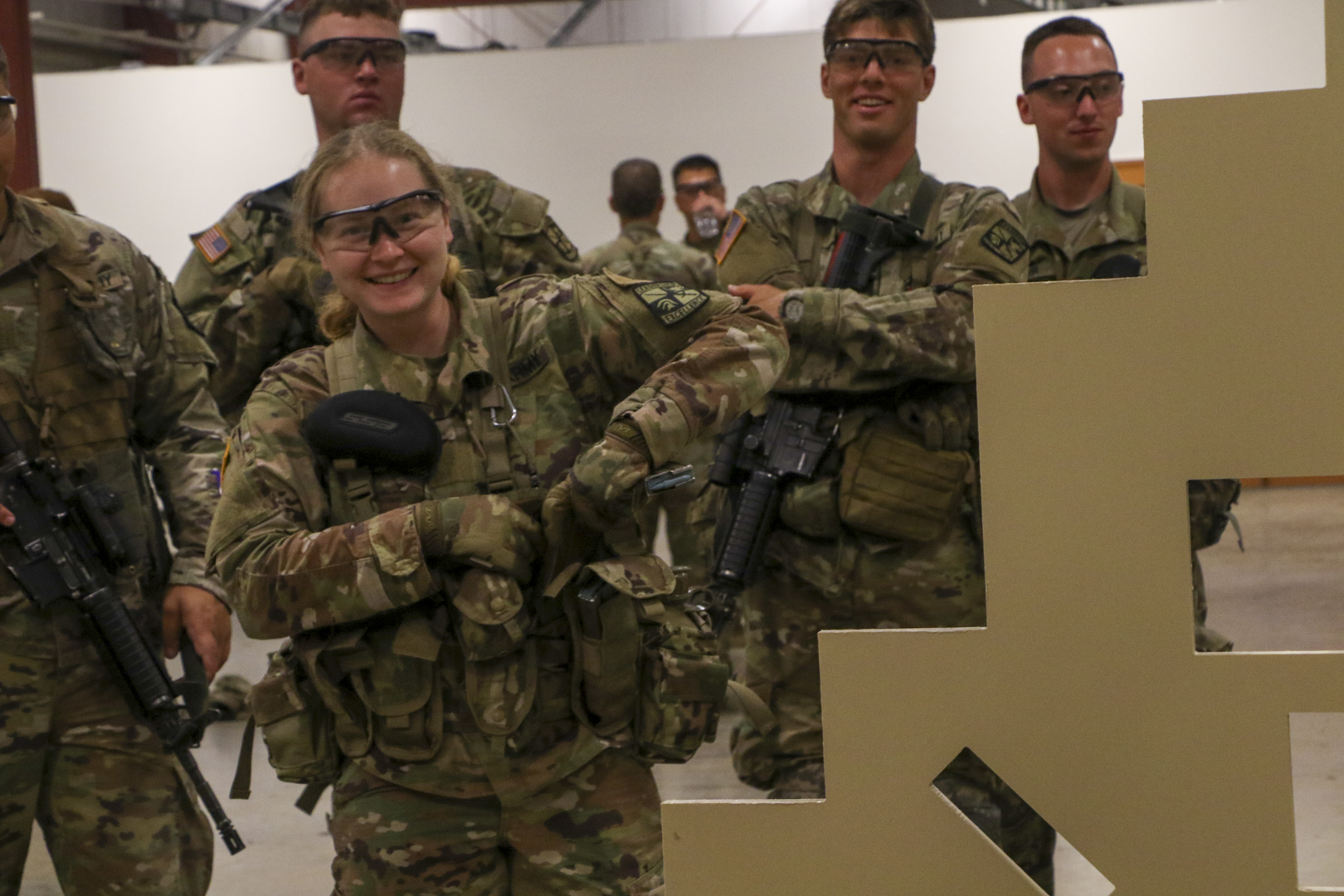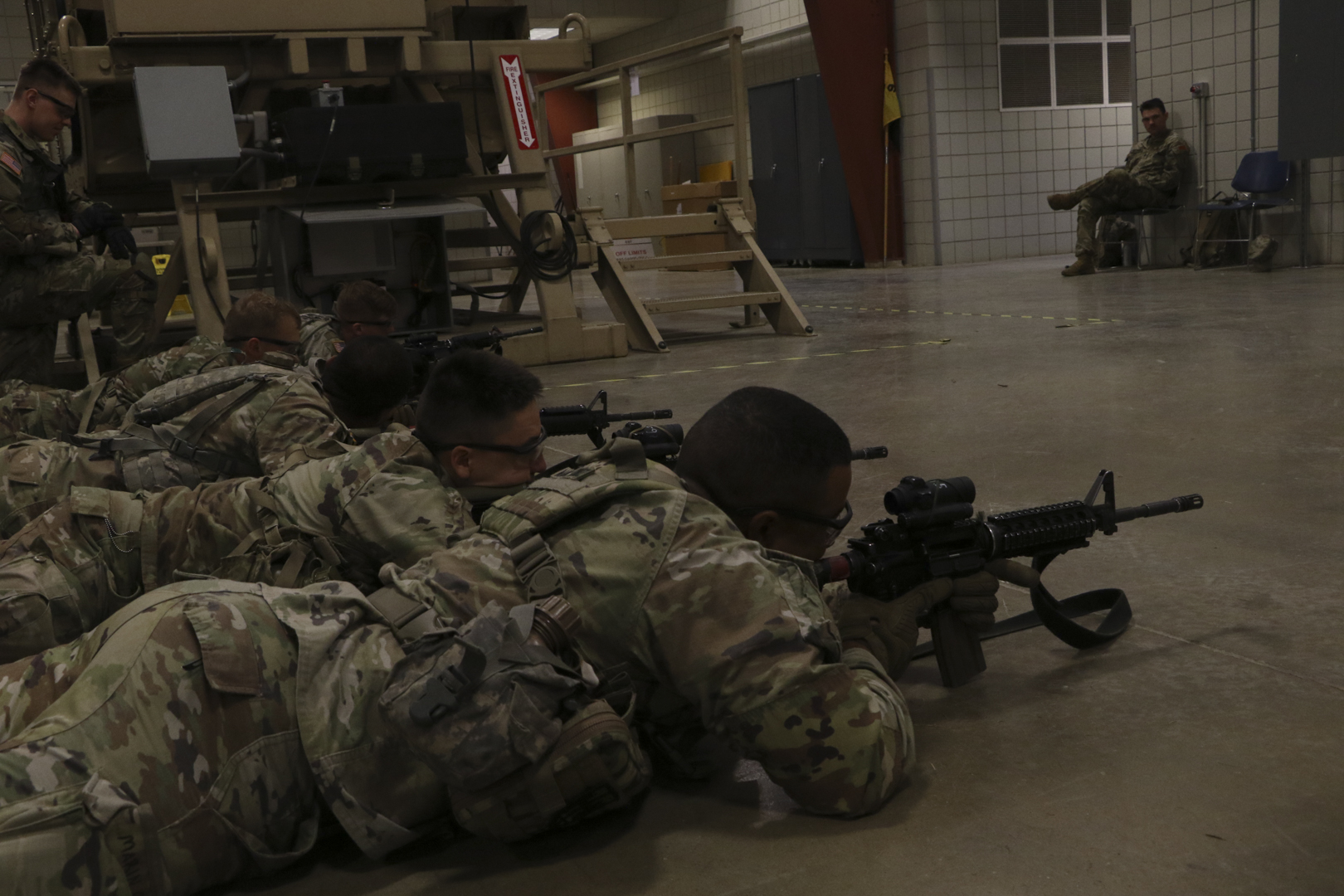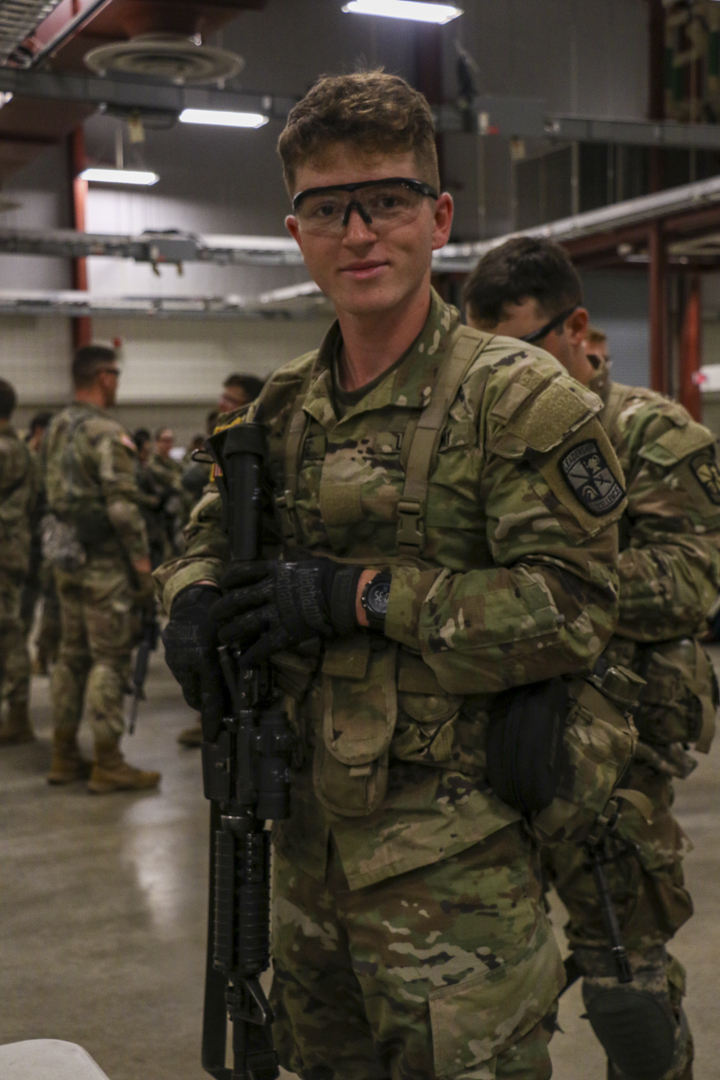FORT KNOX Ky. — Cadets from 9th Regiment, Advanced Camp, practiced firing their rifles during the Engagement Skills Trainer at Fort Knox, Ky., July 16, 2023.

Designed to simulate a weapons qualification, EST allows Cadets to learn how to use their rifle before they go into the field. As they start their firing practice, some Cadets use their past experiences, Cadre, or family, for inspiration or advice.
“EST is a training facility for us to utilize and practice our shooting skills,” said Cadet Amy Beaven, Northern Arizona University. “It’s a great way for people to either learn how to use their weapon for the first time or for those who are more experienced, [they are able to] just get those repetitions in and practice more.”
After having the opportunity to practice firing positions and changing their magazines, Cadets move to a computer simulator to test their skills in a safe and controlled environment.
“[EST] gets them ready to go to the range by letting them fire air-powered rifles that simulate recoil,” said Spc. Peyton Moorhead, 1-4 Cavalry Regiment at Fort Riley, Ks. “[The program] simulates the distance, wind, humidity, and all the different forces that would affect them while training. It gets them ready to feel what it’s like to handle a rifle without putting anyone in danger.”
Preparation, practice, and listening can help Cadets succeed at EST. Knowing how their equipment feels and how it works, can help Cadets feel more confident in themselves and their abilities.

“The biggest reason we do EST is to get Cadets used to the feeling of using our weapon properly,” Beaven said. “When we’re running drills, you can’t fire your weapon, so this allows us to get more practice with you utilizing resources that could be used for actual qualification. I, personally, am a newer shooter, so I think this makes sure that I’m building confidence and going into my qualification being confident.”
For some Cadets who are new to firing weapons, this practice allows them to feel more confident. For some Cadets who have previous experience, the EST gave allows them new skills to utilize and tips to overcome old habits.
“I try not to use what I’ve learned at home at all because when you’ve been shooting since you’re four years old, you develop the worst habits,” said Cadet Daniel Keefe, University of California – Santa Barbara. “Coming to CST this year, I made sure to throw all the numbers and habits out of the window, and just listen to what the Cadre say. The Cadre here, they’re amazing shooters. That’s why they’re here, hand chosen. Listen to your cadre, they have great advice. They know what they’re doing.”
The Cadre notice the things that Cadets struggle with the most because they have prior experience both participating in and running EST.

“Mostly it’s either going to be the hand grips or moving into positions in the time that they’re allotted for tables five and six,” Moorhead said. “It’s less that they weren’t taught this and more they don’t realize they had so little time to move to the next position.”
Cadets are constantly challenged physically and mentally during CST. The advice that Cadre can give to Cadets can help inspire or motivate them. Similarly, the advice that family can give to Cadets can, as well.
“CST is the largest test of a Cadet’s mental fortitude,” Keefe said. “Just being here for only seven days, it’s tough out here. I have only been thinking of my brother. He was just commissioned last spring as a second lieutenant from San Diego State University in California, and he’s always been my inspiration for everything. We’re best friends our entire life, so I’ve been calling him every day. I just think if he could do it, I got this.”
Through preparing for the real-life firing on a range, practicing each step of the process, and listening to those with experience, Cadets can succeed at passing the EST. In the future, those Cadets can then pass on their experiences, advice, and knowledge to others
“The fundamentals are very important, it’s the building block,” Moorhead said. “Work on the whole drill for reloading, work on your positions and keep in mind and retain the knowledge that you’re given from the instructors who always love to answer questions. Remember it so, you can pass it on to your soldiers and make everyone better.”




